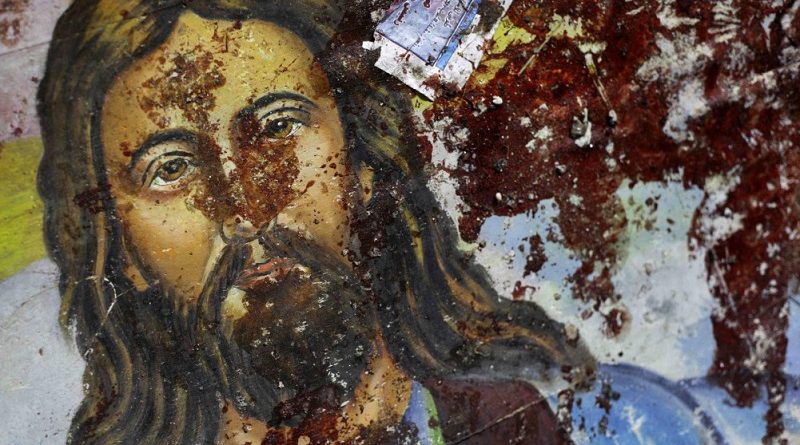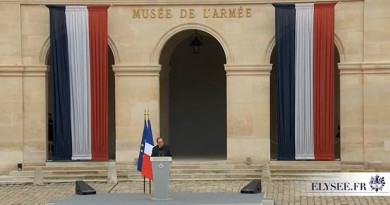CALL FOR PAPERS, DECEMBER 2016: FREEDOM OF RELIGION IN EUROPE
“Call for Paper” is a cultural room where it is possible to read trends and gather innovative proposals, in order to express their own opinion about several topics we are concerned to debate. December 2016 theme: “Freedom of Religion in Europe”
FREEDOM OF RELIGION IN EUROPE
Freedom of religion is the most important freedom, the Alpha and Omega of the Human Rights universally recognized by the signatory States of the Universal Declaration of Human Rights (1948).
The United Nations General Assembly, in the preamble of the Resolution 217 A (III) of 10 December 1948, approved an assumption which granted everyone the “inherent dignity of all members of the human family”; also, it recognised their “equal and inalienable rights”, “foundation of freedom, justice and peace in the world”, a normative consideration which was based on the latest historical experience, where “disregard and contempt for human rights have resulted in barbarous acts which have outraged the conscience of mankind”. Thus, “the advent of a world in which human beings shall enjoy freedom of speech and belief and freedom from fear and want has been proclaimed as the highest aspiration of the common people”.
According to the ‘European Convention on Human Rights’ (CEDU), signed in Rome on 9th November, 1950, the right to exercise the freedom of religion precedes the right of expression. The Article 9 of the CEDU establishes that “everyone has the right to freedom of thought, conscience and religion; this right includes freedom to change his religion or belief and freedom, either alone or in community with others and in public or private, to manifest his religion or belief, in worship, teaching, practice and observance”, which implies that “freedom to manifest one’s religion or beliefs shall be subject only to such limitations as are prescribed by law and are necessary in a democratic society in the interests of public safety, for the protection of public order, health or morals, or for the protection of the rights and freedoms of others”.
Freedom of religion finds a bastion in the Constitution of the Italian Republic of 1948 as well. Art. 19 establishes that “anyone is entitled to freely profess their religious belief in any form, individually or with others, and to promote them and celebrate rites in public or in private, provided they are not offensive to public morality”, whereas the following Art. 20 rules that “No special limitation or tax burden may be imposed on the establishment, legal capacity or activities of any organisation on the ground of its religious nature or its religious or confessional aims”.
Notions that evoke the concept of Positive Freedom of Religion whereas, with the Second Vatican Council, the Catholic Church also promoted the negative reading of the principle, as “right to immunity from coercion in religious matters” .
For this purpose, the Declaration on Religious Freedom Dignitatis Humanae says: “This freedom means that all men are to be immune from coercion on the part of individuals or of social groups and of any human power, in such wise that no one is to be forced to act in a manner contrary to his own beliefs, whether privately or publicly, whether alone or in association with others, within due limits.” (DECLARATION ON RELIGIOUS FREEDOM DIGNITATIS HUMANAE, Rome, 7th December, 1965).
The re-emergence of the Islamist phenomenon, from the second half of the last century until the explosion of a World War declared against Christianity and the West with the attack on the United States on 11st September, 2011, imposed a new declination of the principle of religious freedom, also to maintain, in a matter-of-fact manner, statements of principle such as “inclusive society”, “respect for minorities”, “open society”, challenged by the specular comeback of phenomena of religious intolerance from the outside.
Indeed, the Islamist jihadism does not hide, it declaims its goals: the Islamisation of the world and the imposition of the Sharia law worldwide, from the re-conquest of lands already subject to the Islamic dominion such as Andalusia and Southern Europe.
A rethinking of the concept of the religious freedom is needed, which takes into account the opportunities of connection and dialogue, but also the threats, risks and dangers associated with the displacement of masses of peoples from Islamic countries to the Western ones, where it is pretended to cross the positive law to apply the Koranic one.
Who denies the freedom of religion, does deny the Human rights?
This is the December 2016 theme of the Call for Paper.
Enjoy your work.
Deadline: 28th February 2017
Next ‘Call’: 1st March 2017
Italian – Spanish
TRASLATION AND EDITING BY CHIARA RINZIVILLO © RIPRODUZIONE RISERVATA
Se hai gradito questo articolo, clicca per favore “Mi piace” sulla pagina Facebook di The Horsemoon Post (raggiungibile qui), dove potrai commentare e suggerirci ulteriori approfondimenti. Puoi seguirci anche su Twitter (qui) Grazie.






Devi effettuare l'accesso per postare un commento.